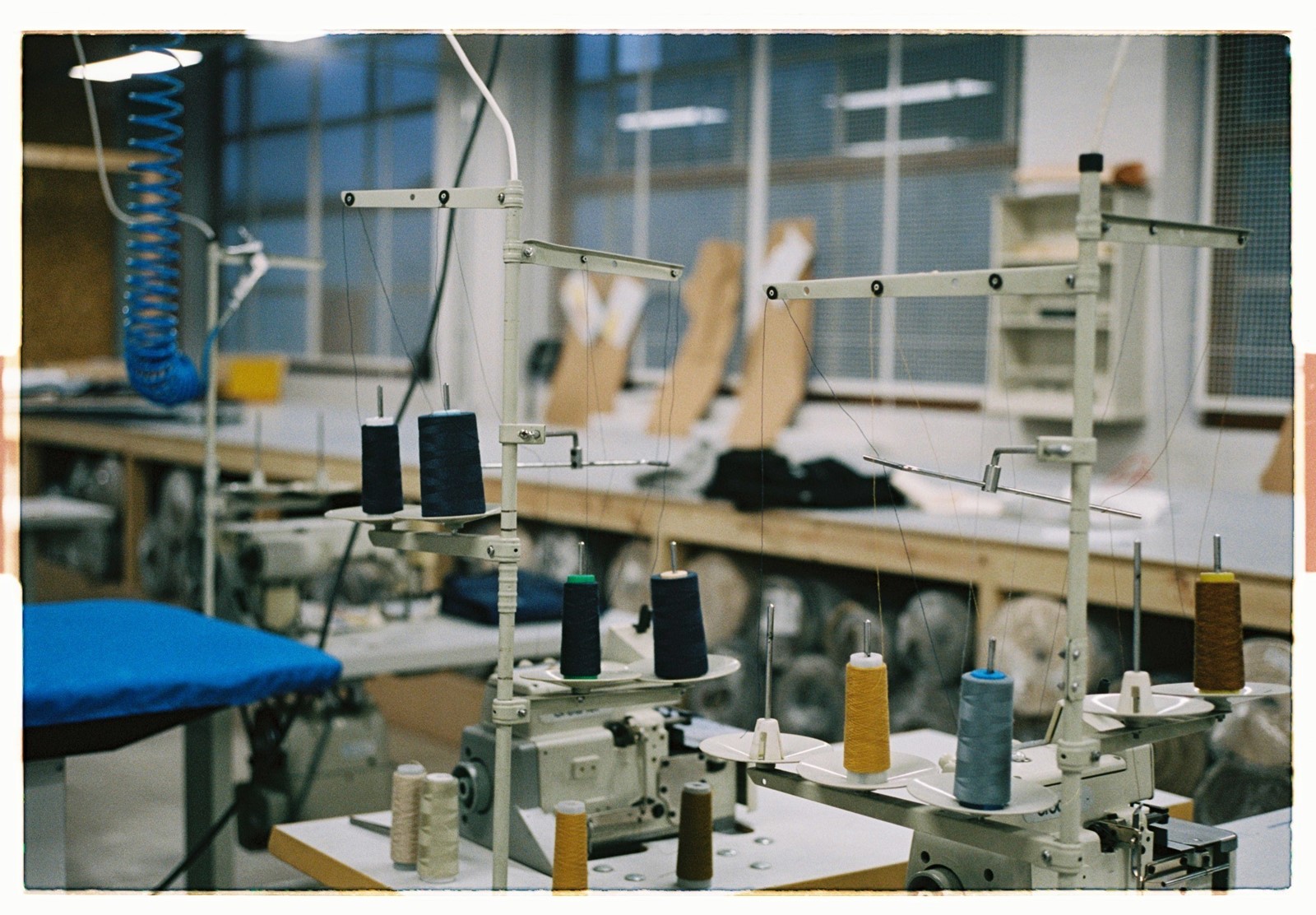At the end of Blackhorse Lane, where residential terraces and greasy spoon cafés are swapped for body shops and builders merchants, is a denim factory with a small sign above the door. There’s no reception and owner Hans Ates greets me, appropriately dressed in a cobalt blue factory jacket and 14.5 oz. denim jeans, before leading me past rolls of denim hanging from the wall and sewing machines to a wooden pattern-cutting table for the interview, still in the factory hall. A handful of machinists, all men of advancing years, are calmly going about their business sewing on leather patches to newly finished jeans, or repairing equipment. This may be a start-up less than a year old, but there’s decades of tailoring experience in the room. I note that it’s remarkably cosy for a cold December morning in this large industrial space and Ates informs me that the building benefits from its history as a double-glazing factory.

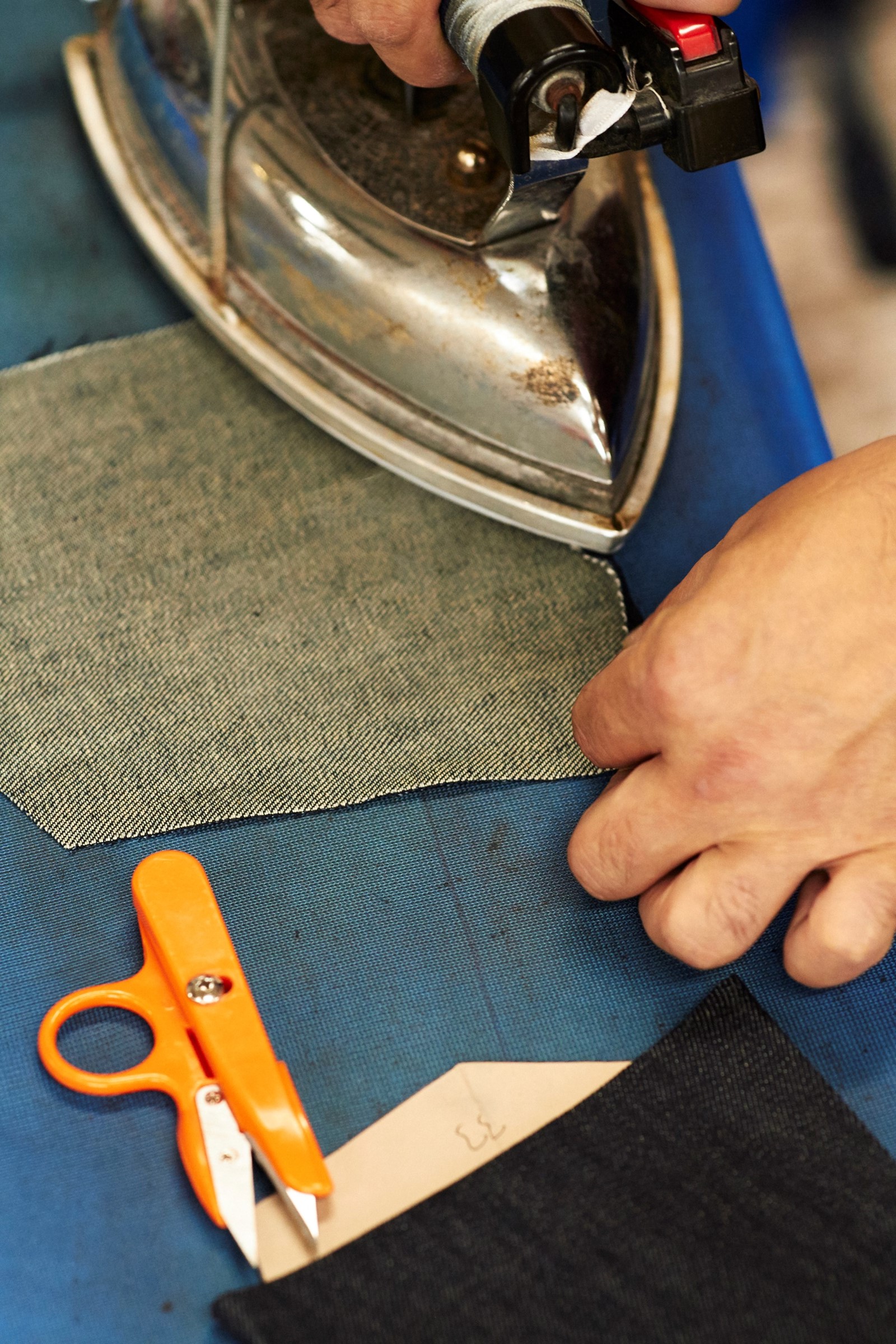
Shortly after I arrive, a designer from a fashion brand on the verge of a much-discussed relaunch turns up in a rush for a consultation about samples. They ask if I mind waiting to start – I don’t, and take the opportunity to do more snooping. I spot leather labels for denim collaborations with a number of hot brands lying around and samples with more exciting names pinned onto them: a strong connection to fashion is clearly being forged here. I chat to Silicon Valley veteran David Giusti, formerly of online retail tech pioneer Lyst who recently joined to take charge of online retail – a clue that Ates is thinking big, both strategically and digitally. Then, a customer walks in and asks to have his pair of jeans taken up. Giusti attends to him personally and arranges for a machinist to make the adjustments while the customer waits. I chat to the customer, who is a trainee teacher. Subsequently, the visiting designer, the customer, Ates, Giusti and I have a discussion about the best local pizza and fried chicken.
Meanwhile, I have noticed that there’s a large restaurant kitchen embedded in the factory, where a Michelin-trained chef Pedro Passinhas is chopping something for the evening, when the factory is transformed into a Denim ‘n’ Dine supper club (yes, really). There’s a hell of a lot going on, but what is most noticeable about Blackhorse Lane Ateliers is the way the company breaks down the boundary between the customer-facing side and engine room of the business: there’s no obvious difference. Indeed, such an impression is intentional, as Ates explains while showing me around the factory. He wants as many locals as possible to come in, to witness the labour of the skilled machinists and to aspire to it – and with good reason.
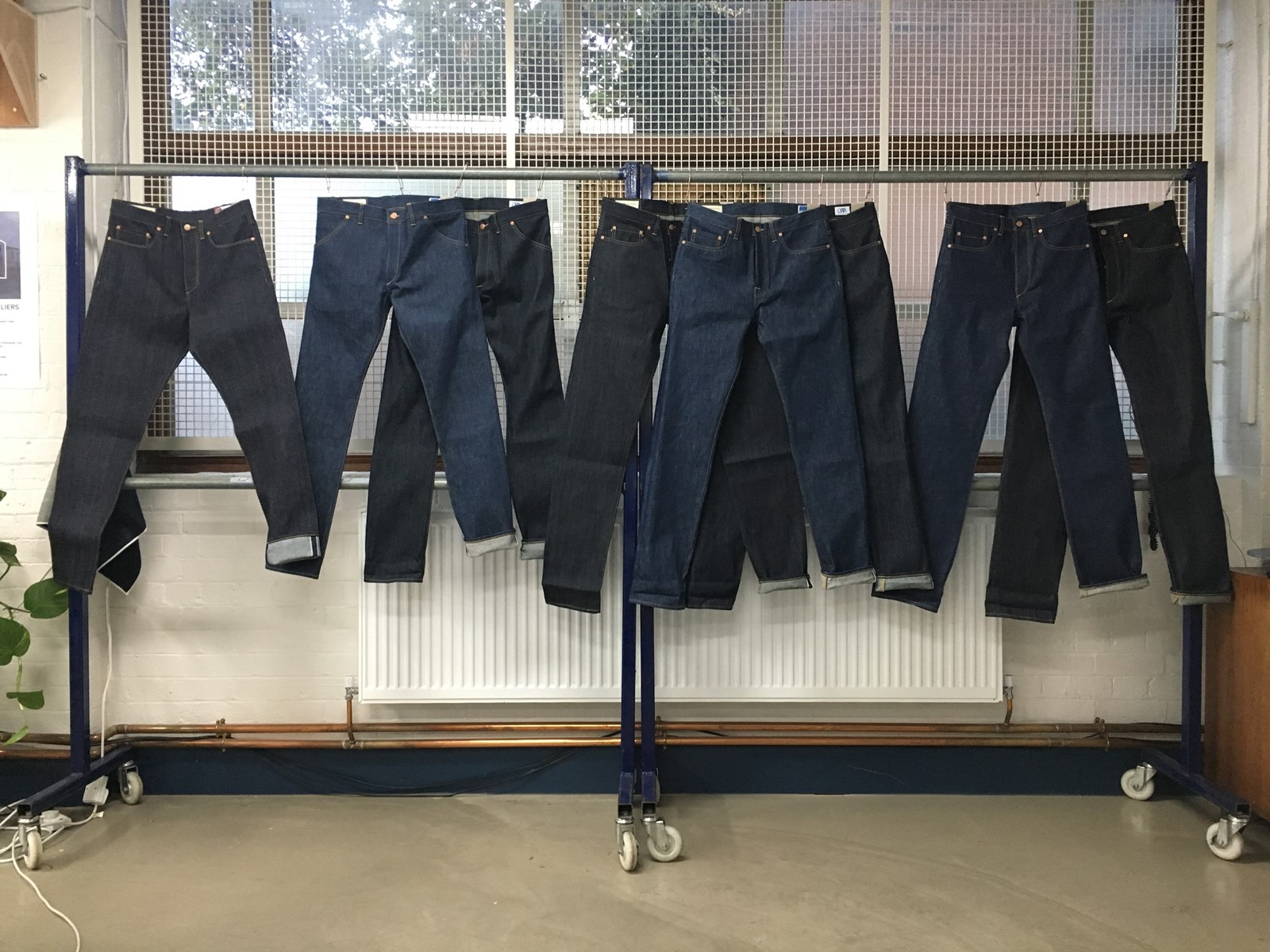
A trained tailor, garment technologist and quality controller who spent his adolescence running factories with family members in London, Ates bought the Blackhorse Lane site in 1995, in his early 20s. He produced suiting for John Lewis and other premium British high-street retailers and it was a doddle to find the skilled machinists back then, as he recounts: “through word of mouth we found 94 people in three weeks to make womens tailoring.” But in the early 2000s along with the rest of the rag trade, he was pushed to shift manufacturing out eastwards, first to Turkey and then to China, as retailer demand for ever higher margins and cheap labour grew with globalisation.
Eventually, unhappy with the toll that life in China was having on his family and sickened by the direction that garment manufacture had taken, Ates sold up. “I didn’t have a relationship with my daughters, my family was crumbling, I was away from the city I loved – London – and I said, ‘fuck all this!’, I want to reconnect with my family’ and I sold all my business interests to my partner. I kept this building, but I hated fashion. I was following the life cycle that fashion created, and I was feeding it being part of it.” After a year of travelling the world with his children, he set up a restaurant business in Stoke Newington.
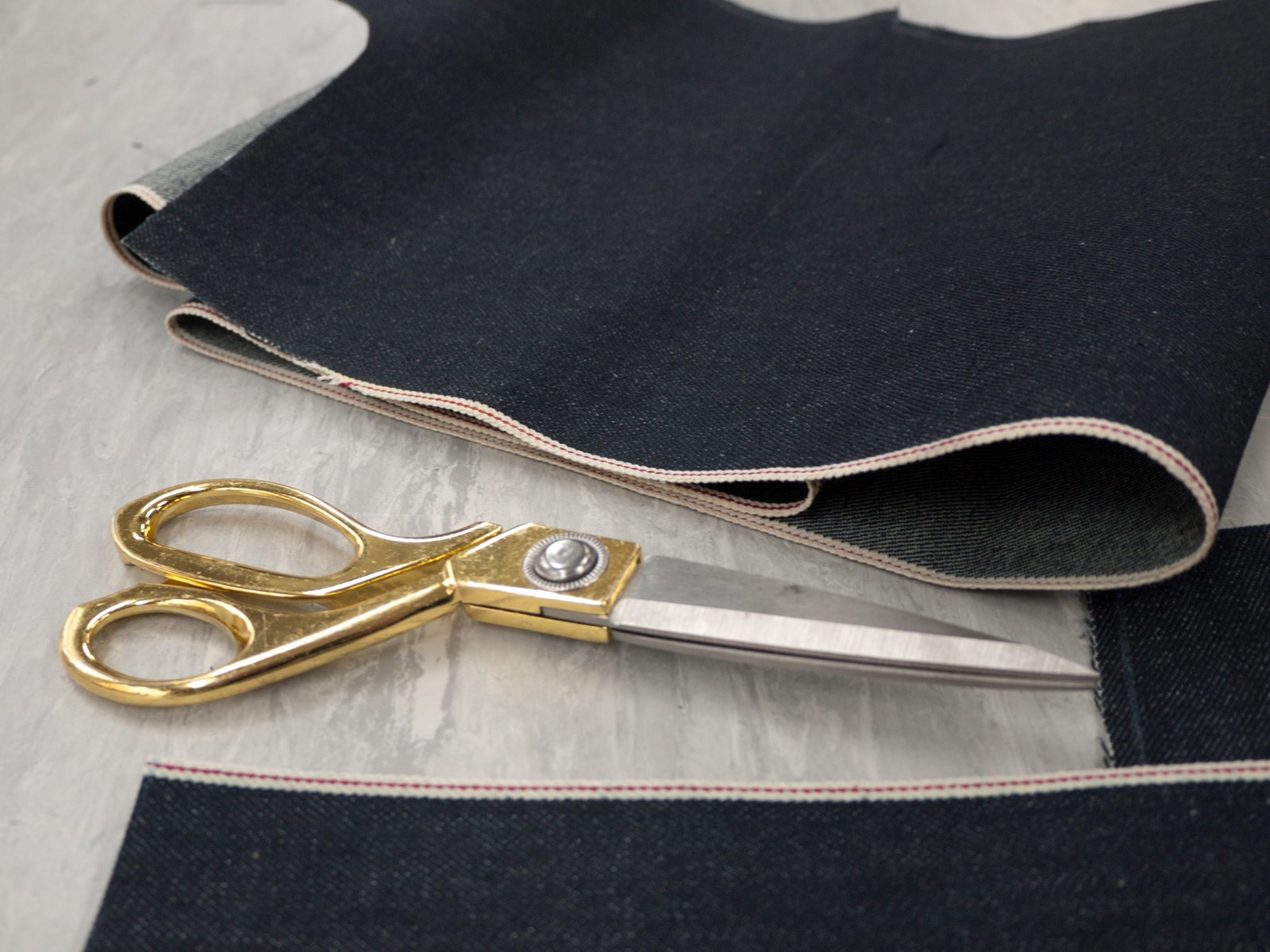
But the siren-call of fashion brought Ates back: as he remembers, “three and a half years later I missed being in charge of the creative side of the business”. He set upon premium denim as his focus – a long-lasting, durable antidote to fast fashion. However, when he tried to find skilled machinists for his new business he found that a lot had changed since he had recruited 21 years earlier. “After a five month-long campaign with banners outside the underground, leaflets, job centres, social media, and word of mouth, we were only able to find eight people and none of them were making jeans – they were tailors – so we had to train them heavily.”
Unafraid of the challenge, Ates made it his goal to produce the best jeans in the world. “When we looked at our competitors, the best were Japanese, so we decided to be better than them. Because of my tailoring background and because of these people’s tailoring background we are able to do that.” They started by buying a selection of premium denim and examining their construction with forensic attention to detail. Ates concluded that of the nine brands they examined, only two were properly and traditionally made. Indeed, during our interview, he showed me jeans made by a number of well-known brands to demonstrate how they superficially mimicked traditional garment construction. He then showed me the way that BHLA make their jeans – the only brand not to use an overlocker on the inside around the crotch (that rough, visible stitching along seams) but to do significantly more time-consuming French seams. “The finish is slower, you take your time. We can’t compete with Japan, we need to do something better, something different. I think we are achieving that.”

Ates is similarly obsessive about sourcing denim, working only with the ten best denim producers in the world, selecting according to a strict formula that considers carbon footprint against quality and the ecological impact of the denim mills. His attention to detail is evidently paying off. Fellow slow denim brand Story Mfg. told me that the only denim manufacturer in the UK that produced high-enough quality jeans for them was Blackhorse Lane Ateliers, and I first found out about Ates thanks to Carin Mansfield of Universal Utility, featured in the Slow Fashion series last year – just about the most meticulous designer I’ve met. Giusti explained that the goal was for Blackhorse Lane Ateliers to become a mark of quality with whom everyone would want to work, like the specialist Paris ateliers used by Chanel.
Ates draws on another source for comparison as a model for how he wants to stimulate a paradigm shift around denim manufacture in the UK: “When the craft beer movement started it increased people’s awareness. It changed consumption, and now every single pub has to have craft beer. The denim world is like that at this moment. Levi's quality is shit, they buy fabric from China, fly it to Morocco, finish the garment, then they fly that to Japan or Korea – imagine the carbon footprint of that. I thought we could do extremely good quality garments with lifetime free repair. We encourage the consumer to buy better quality jeans, to use it longer, get it repaired for life, buy less and buy locally.”
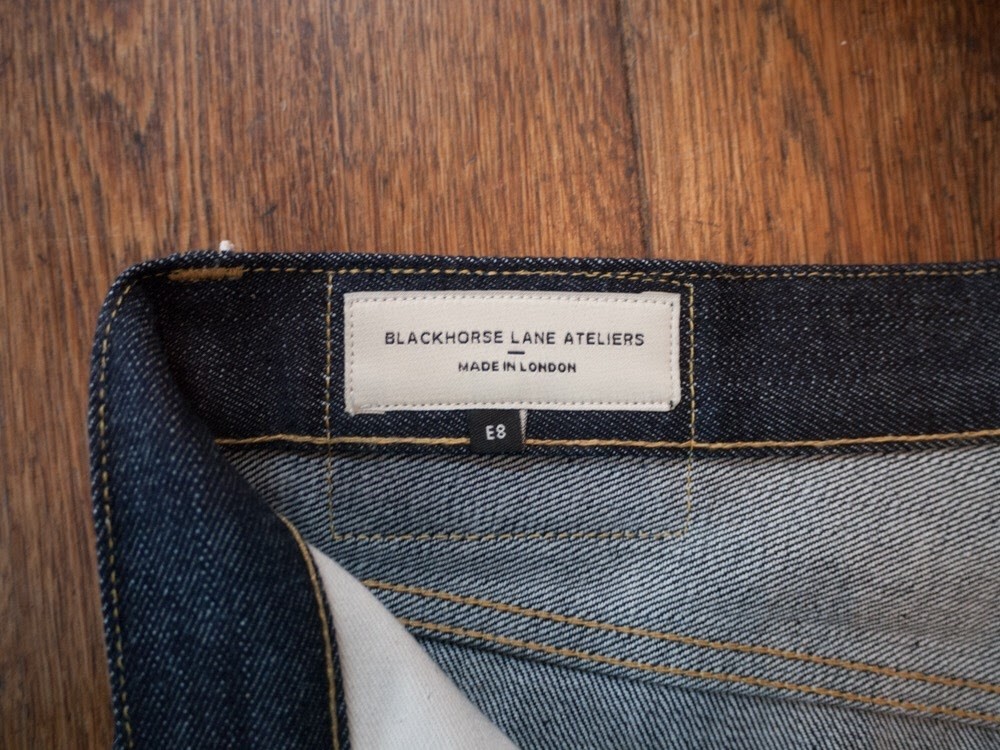
Ates is frustrated by the low status of garment manufacture in the UK. “Waiters and baristas work on minimum wage plus tips – my machinists here are on £10, £11 an hour, better than most chefs. There is glamour now about being a chef, but these people are highly skilled artists, we don’t give them the respect they deserve. If you don’t give them the respect they deserve, why would someone else come and be a machinist?”
Moreover, Ates thinks that a revolution in how labour is valued by society is required: “The drainage of the skill set in 20 years, from 94 people in three weeks to eight people in five months, is a tragedy. There’s a heritage there and the government needs to address it, at any cost. We all have different skill sets, and should earn decent money. We need to change the mindset. We could change it if we help each other.” As for me, I’m just waiting for them to launch a line of women’s denim – apparently, it’s coming soon.
